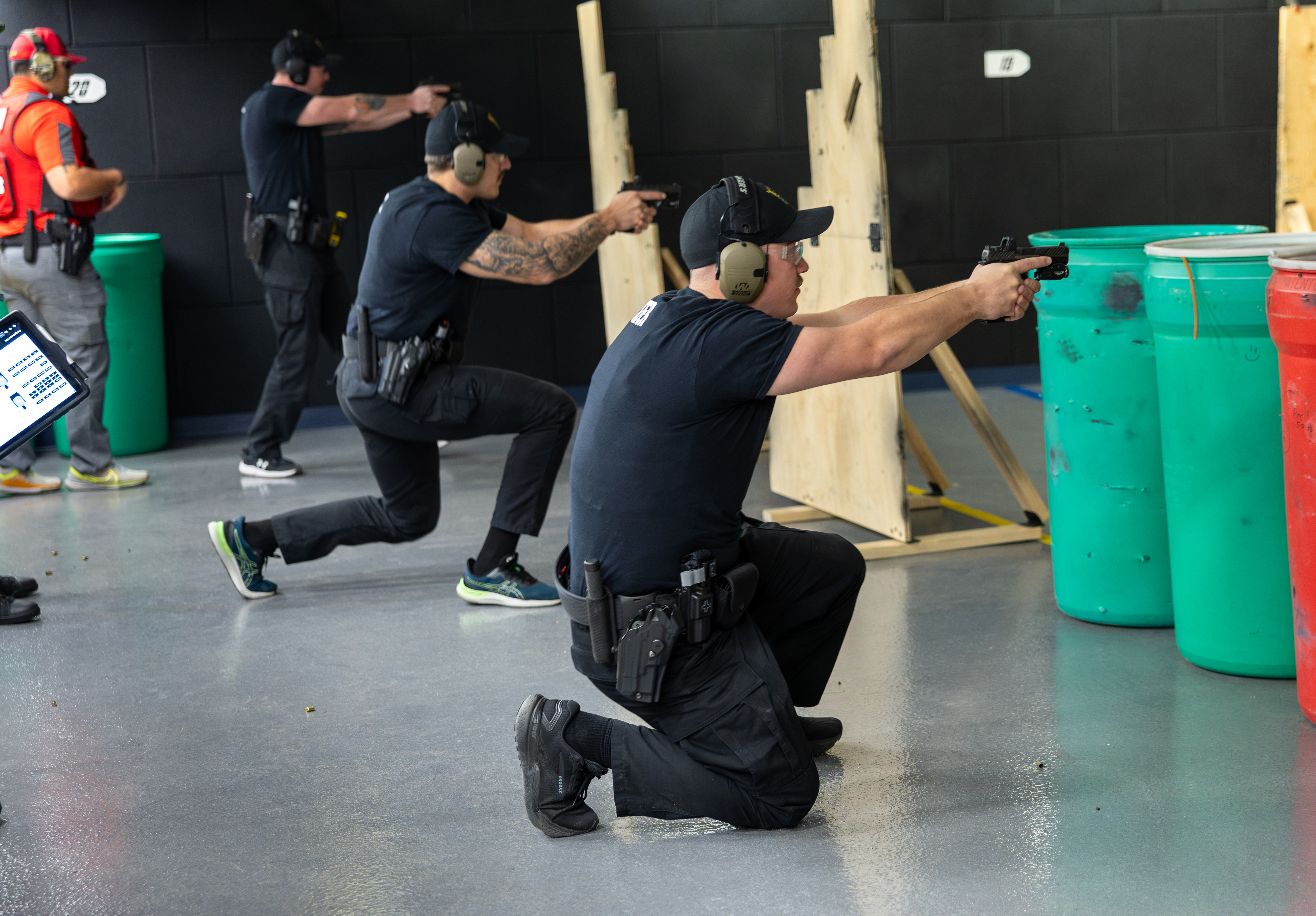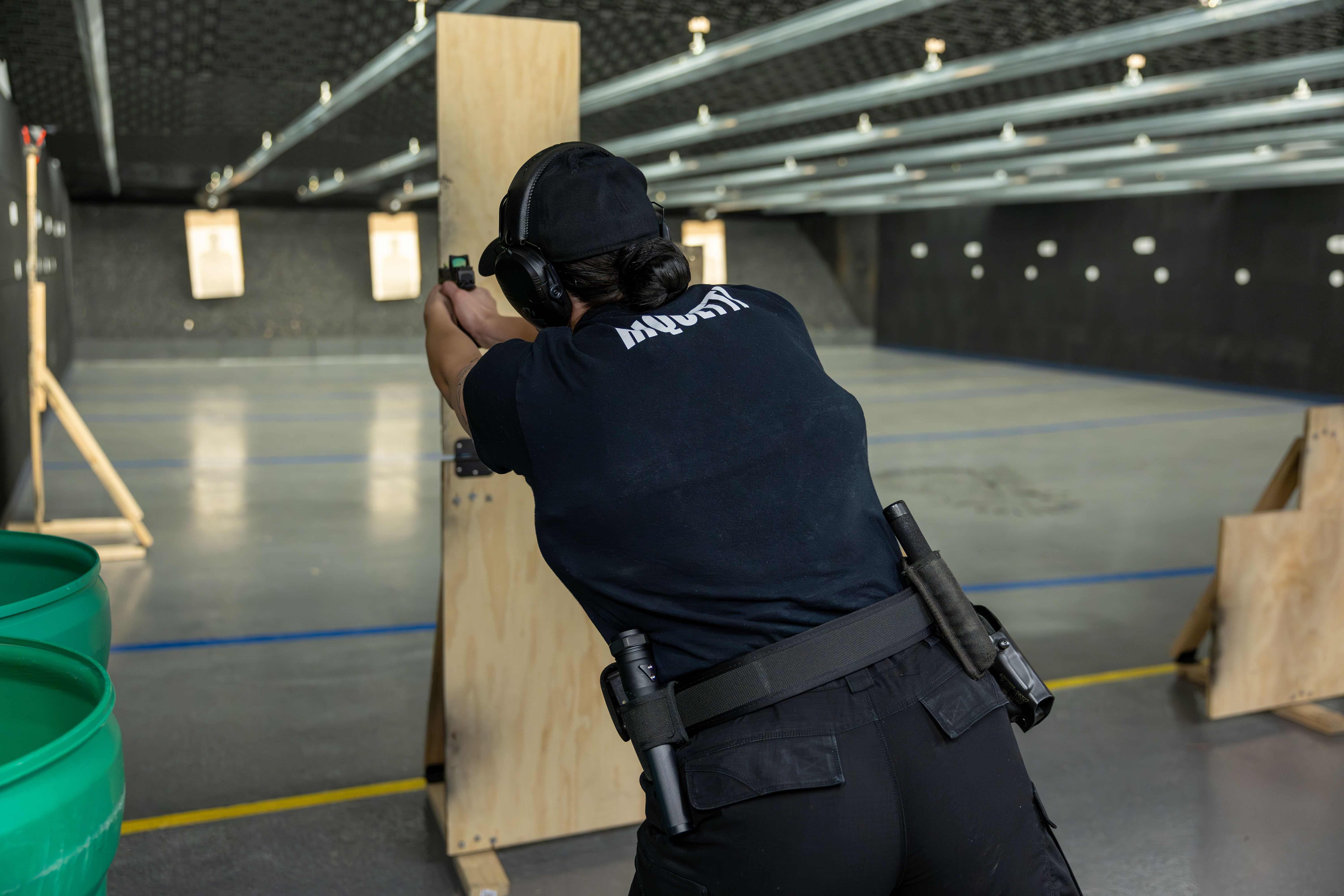Firearms Training
During the Academy, each cadet will spend approximately 122 hours developing proper firearms skills. The primary objective during the training is to give each cadet the skills needed to defend themselves and others in a deadly force confrontation. Firearms training requires the cadet to memorize, always understand and demonstrate the four firearms safety rules. The cadet will be expected to memorize the nomenclature of their issued weapon; Shadow Systems XR/MR920 and Sionics Patrol Rifle. The cadet will be expected to implement the six fundamentals of shooting throughout their firearms training. The cadet must always remain mentally focused and will learn how to channel outside influences, disappointment and frustrations throughout firearms training. The cadet will demonstrate tactically sound decisions and will be able to articulate why he/she did, or did not, do something. The cadet will be expected to understand the use of deadly force, the use of less lethal force and will be expected to demonstrate, through critical thinking practical exercises, the ability to de-escalate or escalate said force.

Course requirements to successfully complete the Firearms Program are:
- 100% attendance
- Written test, minimum score of 80%
- P.O.S.T. tactical handgun qualification course, per P.O.S.T. guidelines
- CSP handgun qualification course, minimum score 70%
- Practical weapon manipulation test, pass/fail
- CSP rifle qualification course, minimum score 70%
- Decision shooting practical
- Active shooter practical
The handgun and rifle training are conducted at the CSP Academy indoor firearms range. The range is equipped with the Meggitt Training Systems RangeMaster 10K Range Control System, which allows the targets to move from 0 to 75 feet, 360-degree target rotation and can accommodate up to 10 shooters at a time.

Cadets will also complete several critical thinking, force-on-force scenarios using a 9mm paint ball round that fires out of a converted duty handgun. The student will challenge role players also armed with 9mm paint ball rounds through a converted weapon. These scenarios include:
- Building search scenarios
- Vehicle assaults
- Decision shooting
Basic Firearms Program
Topics covered are as follows:
- Firearms safety
- Weapon maintenance
- Proper care and cleaning of firearms
- Use of deadly force considerations
- Equipment selection
- Proper shooting fundamentals
- Weapon management
- Clearing weapons malfunctions
- Shooting while moving
- Proper use of cover and concealment
- Incapacitation drills (manipulating the weapon with one hand)
- Dim light shooting
- Tactical scenarios
- Proper weapons deployment during building searches and active shooter practicals
- Shot avoidance drills
- Vehicle assault drills
- Decision shooting scenarios
- Proper use of the patrol rifle (AR 15 platform)
- Off duty carry